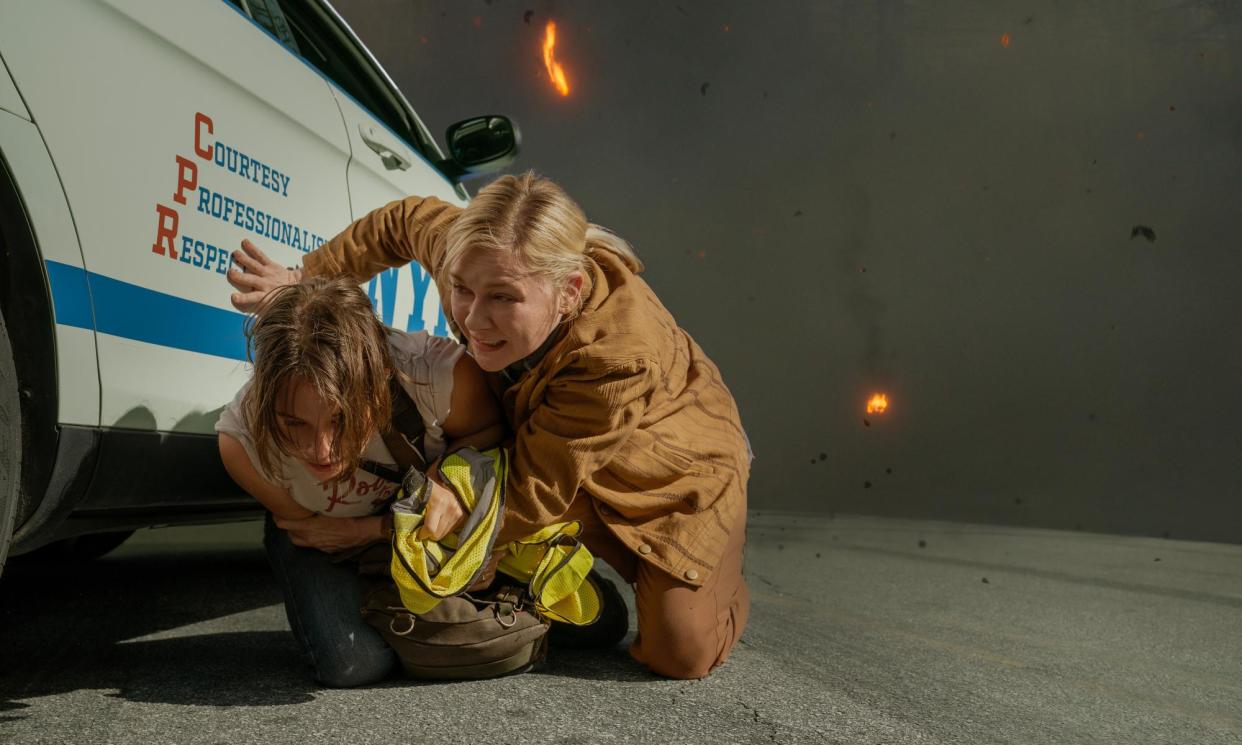Civil War review – Alex Garland’s delirious dive into divided US society

Writer-director Alex Garland stages a spectacular if evasively apolitical “civil war” in this futurist-dystopian action thriller, involving hundreds of extras lying on the road next to upturned blackened cars with CGI-mutilated buildings in the smoky distance. The film’s fence-sitting reluctance to name any of the issues that might actually result in a civil war arguably means that the film can be enjoyed by the widest possible audience base. But the whole thing does finally snap into shape for a Call of Duty melee in the heart of American democracy, an ugly denouement possibly riffing on the January 6 Capitol attack, in which something seems to be clearly at stake and which (belatedly) gives us a glimpse of believable horror and delirium.
The scene is an America whose evident but unspecified divisions have exploded into open fratricidal warfare. The states of Texas and California are now ruled by the rebellious secessionists, the Western Forces, or WF, making massive advances on Washington DC, a situation about which the president (Nick Offerman) is in denial, making delusional TV addresses about how well he’s doing.
A group of photojournalists now plans to make the terrifyingly dangerous journey in a press SUV behind WF lines, possibly hoping to tag along with their advance on the capital, each secretly dreaming of the ultimate money shot: the capture or execution of the commander-in-chief. Veteran war photographer Lee is played by Kirsten Dunst with a permanently sorrowing and disapproving schoolteacherly expression of dismay; her buddy is Reuters reporter Joel (Wagner Moura) who is the warfare-adrenaline junkie, euphoric after each scary shoot up. (“Holy fuckin’ shit! What a fuckin’ rush!”) Ageing veteran Sammy (Stephen McKinley Henderson) is a New York Times reporter, the voice of wisdom. Just-out-of-college newbie Jessie, played by Cailee Spaeny, cheekily sweet-talks Joel into letting her ride along in their grownups’ car and almost overnight turns from a callow student into a cool wiseacre. They have conversations, in the time honoured manner of fictional war journalists, about whether journalism makes a difference and about what they would be prepared to photograph etc – but weirdly don’t talk about what has caused this civil war.
It is clearly a reasonably diverse group, although it is this very diversity that gives us an easier task of guessing which of them is going to make a self-sacrificial gesture of courage to save the others. For their journey, Garland gives them freaky and surreal episodes and encounters, underscored by interesting and emphatic musical choices that mimic their dissociative trauma, although sometimes these episodes will be suddenly curtailed. At one stage they’re pinned down by a sniper in an abandoned outdoor play area with Christmas music bizarrely playing … the next thing we know they’re safely back in the car. How? It’s a strange, violent dream of disorder, drained of ideological meaning.
• Civil War is in US, UK and Irish cinemas from 12 April, and in Australian cinemas from 24 April.

 Yahoo Movies
Yahoo Movies 
